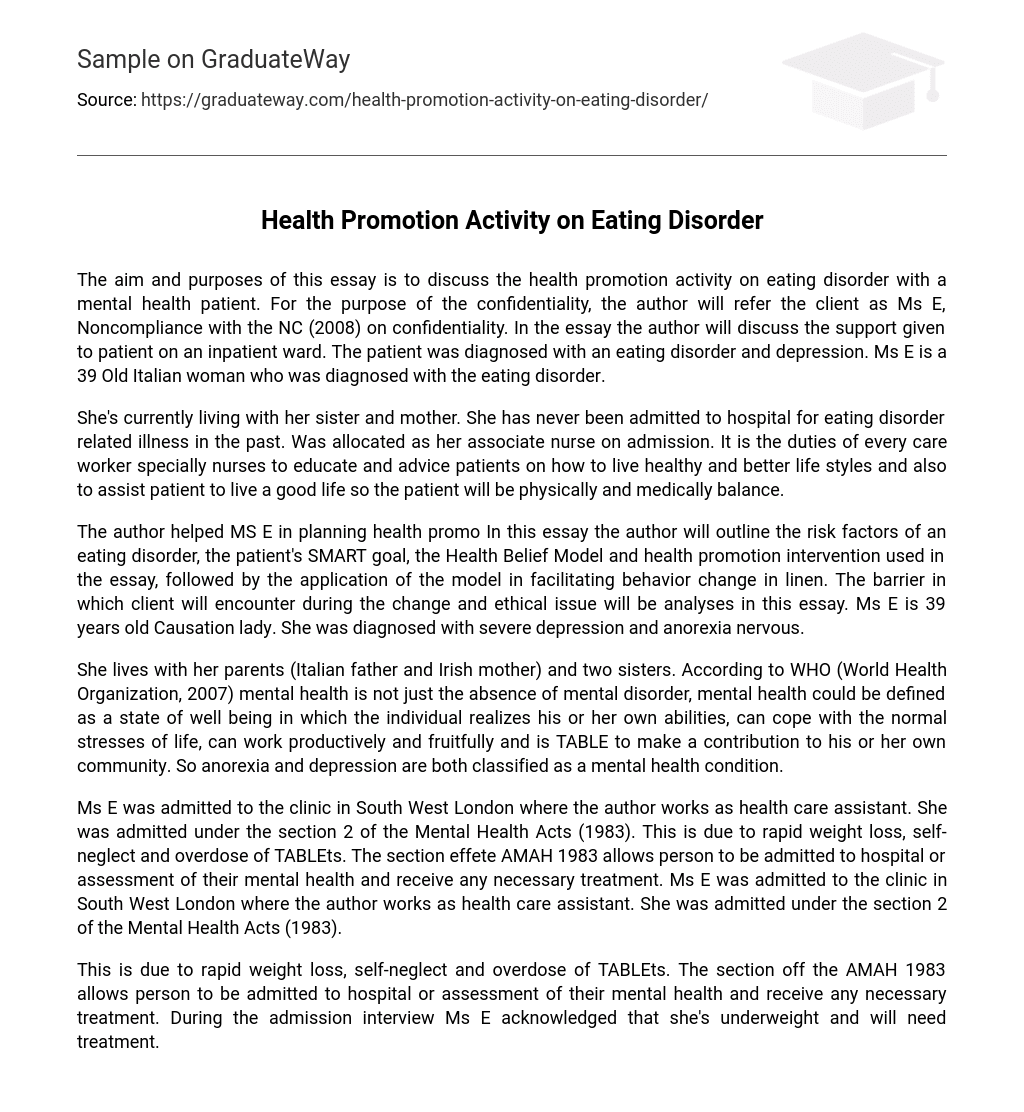The purpose of this essay is to discuss a health promotion activity on eating disorders with a mental health patient. To protect confidentiality, the client will be referred to as Ms E, following guidelines from NC (2008) on confidentiality. The author will explore the support provided to Ms E during her stay in an inpatient ward. She has been diagnosed with both an eating disorder and depression and is a 39-year-old Italian woman.
Currently, she lives with her sister and mother and has never been hospitalized in the past for any eating disorder-related illnesses. I was assigned as her associate nurse when she was admitted. The duties of care workers, especially nurses, involve educating and counseling patients on adopting healthy lifestyles while helping them achieve physical and medical equilibrium to enhance their quality of life.
The purpose of this essay is to discuss the author’s participation in assisting Ms E with planning a health promotion intervention. The essay will explore the risk factors associated with eating disorders, specifically focusing on Ms E’s specific SMART goal. It will also highlight the utilization of the Health Belief Model in this intervention and how it was applied to facilitate behavior change in Ms E’s life. Furthermore, potential obstacles that may arise during this process will be analyzed and ethical concerns addressed. It should be noted that Ms E, a 39-year-old Caucasian woman diagnosed with severe depression and anorexia nervosa, is the subject of this intervention.
According to WHO (2007), mental health encompasses more than simply the lack of mental disorder. It is defined as a state of well-being in which individuals have self-awareness, cope effectively with everyday challenges, perform well at work, and contribute positively to their communities. Consequently, anorexia and depression are classified as mental health conditions. The individual specified in the passage resides with her parents (an Italian father and an Irish mother) and two sisters.
Ms E was admitted to a clinic in South West London where the author works as a healthcare assistant. She was admitted under section 2 of the Mental Health Acts (1983) due to rapid weight loss, self-neglect, and an overdose of tablets. The section allows for a person to be admitted to a hospital for assessment of their mental health and receive any necessary treatment. Ms E was admitted to the clinic where the author works as a healthcare assistant under section 2 of the Mental Health Acts (1983).
The reason for this is the fast loss of weight, neglect of oneself, and excessive intake of tablets. According to section AMAH 1983, individuals can be hospitalized or assessed for their mental health and be provided with appropriate treatment. During the admission interview, Ms E admitted her underweight condition and expressed the need for treatment.





